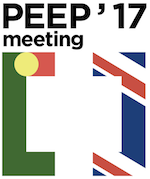Reflection as a Means to Develop Young Learners’ Metacognition – an exploratory study
DOI:
https://doi.org/10.34630/sensos-e.v5i1.2511Keywords:
metacognitive awareness, reflection, teacher’s role, self-assessment, young learnersAbstract
The exploratory action research study conducted as part of my practicum as a student teacher during the master’s degree studies in teaching English at primary level aimed to explore two strands of the umbrella term, metacognitive awareness. These were self-awareness (Who am I as a language learner?) and cognitive awareness (Why and how do I learn a language?). Secondly, the study aimed to help understand the teacher’s role in fostering reflection and how reflection can support students’ learning. The study was conducted during a 2- month period and involved a group of 26 students at primary level. The main data collection tools consisted of a teaching journal used to note pertinent contributions from students, and student questionnaires. Classroom practice consisted of strategic questioning, reflection upon the activities carried out during the lesson through the use of reflection cards and reflective summaries promoted by the teacher. Results showed that over time, through reflection more students were able to recognize their mistakes, share their learning strategies with their peers, and students were able to provide more reasons for the activities carried out in the classroom. Moreover, the study demonstrated that the teacher’s role is fundamental in promoting students’ reflective attitudes towards learning.



